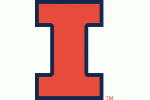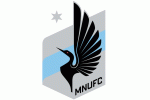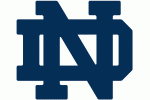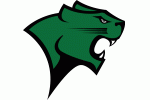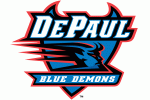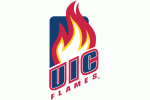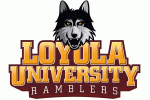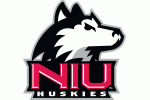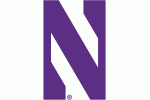Theo Epstein joined Jim Duquette and Jim Bowden during the Front Office (MLB Network Radio/XM Radio) last Sunday morning. The Cubs President of Baseball Operations discussed a variety of topics with the former general managers.
Theo Epstein talked in length about the Wrigley renovations and the possibility of the project not starting as planned this off-season. Epstein discussed Javier Baez, Kris Bryant, the Matt Garza deal and which player he feels will end up being the headliner of the trade in a couple of years. Epstein also talked in length about what the team’s payroll could and should be in the coming years.
Jim Duquette: Our final guest of the show, we appreciate his time. He is the President of Baseball Operations for the Chicago Cubs, he’s Theo Epstein. Theo, its Jim Duquette and Jim Bowden. How are you doing? Thanks for your time today.
Theo Epstein: You’re welcome. Hey guys, good to be on with you.
Jim Bowden: Glad to be with you. So I smiled when I saw this summer that Pearl Jam was playing at Wrigley Field. I remembered that was your favorite group. So I’ve got to ask you, how involved were you in getting Pearl Jam to play at Wrigley number one. And number two, how come you weren’t on stage with those guys.
TE: (laughs) Well, I guess I didn’t mess this one up; we’ll just put it that way. It was real important for us to have those guys here. Eddie being from Chicago, it was really personal for him. We had a lot of rain that night and actually had a two-hour delay but it turned out to be a great night. They got back on stage and played until two in the morning. So it was a special night that a lot of people will remember for a long time.
JD: Were you at least backstage at all?
TE: (laughs) No, I just wanted to appreciate it like a fan. We turned it into a great weekend. We had a good time.
JB: Yea, it’s tremendous that you were able to do that. Speaking of Wrigley Field. A lot of improvements are ahead. Can you kinda break down and talk about what’s ahead and the dollars you guys were able to secure for the improvements going forward?
TE: Yes. It’s actually kind of a misunderstanding out there. We are actually paying for the whole thing ourselves. We didn’t get any public funding for it. So this latest round of negotiations is just been an effort to secure the approvals that we will need from the city and from the neighborhood to make sure everyone’s interests are balanced properly. The Cubs will be paying for the whole thing ourselves. It’s about a $300 million renovation. It includes significant improvements. Inside the ballpark, the seating bowl, new amenities for the fans. The clubhouse will be completely renovated and brought into not only the 20th century but the 21st century (laughs). It will give us basic things like batting cages and proper medical facilities that we really need and lack right now. There is also a significant amount of improvement outside of the ballpark and development around Wrigley including a hotel, an area that will be outside the ballpark that fans can enjoy even wh! en there are not any games. It’s going to be a tremendous renovation, kinda similar to what witnessed around Fenway Park over the course of a decade. Hopefully our renovation won’t take quite 10 years. We’re eager to get started.
JD: When does it look like you will be able to get started and what’s the projected time period to finish it?
TE: Well, with some of the delays that we’ve experienced with everything, it’s complicated around here. We probably won’t be able to start in earnest this winter. You have to order steel and other resources ahead of time and we just don’t have our final, final approvals yet. I think the work will begin in earnest following the 2014 season. Hopefully we can get the new clubhouse online. I think we are going to do that first because our players really deserve it. Then make sure the fans have the most important amenities they need first. Honestly, from a selfish standpoint on the baseball side, we are looking to get some of the revenue generating items done as quickly as possible too. Being in a big market like Chicago, we really need to enhance our revenue stream so we can have a payroll commensurate to our status of being a big market team.
JB: Theo I think, by the way, on the rebuilding. What a great job you guys have done. I know the results at the Major League level are not there but anyone that is following what you guys are doing, your blueprint and how you are doing it; it’s been absolutely to the tee. The trades of Garza and Feldman and the timing or whether it’s your draft picks or whether it’s your international signings. Behind the scenes that the world doesn’t see, you are kicking it. So let’s get to some of these guys because you’ve got a lot of guys doing well. I’ve got to start with a kid that is just tearing it up, Javier Baez. Can you kinda breakdown what he’s been able to do and maybe give us what your timetable is on him now?
TE: Javy is an extremely impressive kid, our first round pick in 2011. The thing that jumps out right away the first time you see Javy play is his bat speed. I mean it is 80 bat speed. The name that most people drop as a comparison, just with the bat speed alone is Gary Sheffield. You kinda roll your eyes when you hear that but if you watch him swing the bat, it is reminiscent of Sheff’s bat speed and you can’t say that lightly. He’s got a chance to be a really well-rounded player. He’s just not bat speed. When he first started his pro career he was a little bit out of control and the bat speed was really the only thing that stood out. He probably took too big a swing; he chased too many pitches, little bit out of control in the field and on the basepaths. But he’s really worked hard on his game to get himself more under control in the batter’s box, tone down his leg kick a little bit, toned down his hips and lowered them a little bit. He’s now swinging at stri! kes and the ball absolutely jumps off this kid’s bat. He’s got 31 homers, 30-plus doubles between High-A and Double-A at age 20, and he’s really well rounded. He’s got great fielding instincts. We think he can stay at shortstop and also has the baseball mind and the athletic ability to move around the diamond. So he could play third, he could play second, he could probably play outfield, he could probably catch if we needed him to. But realistically he can play anywhere around the infield to and is really working hard. We are proud of the season he’s had developmentally.
JD: Speaking with Theo Epstein. Theo, I want to ask you about Kris Bryant. Both Jim and I had Bryant ranked number one on our list. I know you moved him up to High-A ball. How quickly is he to the Major Leagues? What are your thoughts? What have you seen out of him?
TE: His performance and his development and how quickly he can work on his weaknesses will dictate that but we are really excited to have him in the organization. Raw power is so hard to find in the game these days. Not only Javy, but Kris Bryant too. They don’t have to hit all of the baseball to hit it out of the ballpark. They have the kind of power that can leave the yard to all fields. Bryant is pretty advanced. He was a college player that had a lot of success. Probably more success, in terms of power, than anyone has ever had with these bats they are using now in college. But there are still some things he needs to work on. He didn’t get pitched to a lot in college so see the better pitching and seeing the different attack plans that better pitching is going to have for him will be important. He’s 6-5 and a half. We think he’s got a chance to stick at third base but that’s going to come with a lot of work, especially to his left. There’s some things he need! s to work on but another really hard worker and a great kid who had a lot of success in short-season. We have another third base prospect we really like who is 19 years old in Low-A named Jeimer Candelario. Rather than move Candelario up, who is having a really good season in Low-A, we wanted to leave him there because we think that is the appropriate level for him right now. We wanted to test Bryant to see if he could handle High-A. We thought it would be good for him. So far so good. He’s hit a few home runs; he’s hit some doubles and is seeing pitching. He’s seeing what it is like to see when they can throw three really good breaking balls at you in the course of an at bat and make adjustments. We are happy with the early returns so far from Kris.
JB: Theo, you did a tremendous job with the trade deadline with your several trades, highlighted by the Matt Garza deal. Quite a load you were able to bring back from Texas. I was surprised you were able to get the four caliber of prospects that you were able to get. Can you breakdown how that process went? Did you try to sign Matt before that happened? And then going forward in free agency at the end of this year is Garza a guy that you would look at to possibly re-sign?
TE: We did have discussions with Matt at different points over the last 18 months about signing here. The injury probably complicated things on both ends. So it reached a point that is was clear that we probably were not going to work something out, at least not during the season. Given where we are, I think that is one thing we have going for ourselves is that we are honest about where we are as an organization, both internally and externally. It became clear that moving him was the best thing for everybody. He’s a free agent at the end of the year. Anything can happen in free agency but we needed to maximize his value that he represented for just being under contract for 2013. We looked at the Zack Greinke deal and Anibal Sanchez deal as comprobables. Not that he is necessarily Zack Greinke but they are two of the better pitchers that have been moved with only a partial season remaining on their contract under the new collective bargaining agreement. There was one sort o! f highlight-headline player in the deal, in each of those deals, close to the Major League talented player as well as some depth in the deal. So as we talked to some teams we tried to use that as a model. Texas, ironically, did not match up early using that model so we did what we could do with other teams knowing that Texas was interested. We went back to Texas and said, look you do not stack up as far as having that one player that is close to the big leagues that can carry the deal on his own so because of that here is what we are going to need in terms of volume and in terms of quality. We made sure that C.J. Edwards was in the deal. While not close to the big leagues, we think in a year or two, he’s going to be the guy who can headline this deal. So it came together late with Texas, kinda quickly. We stayed away from them early on purpose because they didn’t necessarily fit the model. We wanted to line some other things up then take it back to them.
JD: Theo, you talked earlier about the revenues, obviously generating more revenues to get your payroll up. In your projections, what is a realistic payroll to be at now? As you said, you guys are a big market club …
TE: Yeah …
JD: Where do you see that maybe two years down the road or whenever you think that is?
TE: Well, I don’t want to drop a number on it because there are so many different variables involved and you don’t necessarily need a big payroll to win. But, I will say this. Back in 2011, the year before I got here, I think the payroll was around $140-$142 million. It is significantly lower than that now just because some of the obstacles we’ve run into. The renovation and having to pay for it ourselves and some other factors. I think clearly the first step is getting it back to where it was and then growing it significantly from there. And we should be able to. These days you really have to follow the TV deals and follow the money. So if you look at teams like Texas, Philadelphia, obviously the Dodgers, places that have gotten the mammoth TV deal they are able to really invest in their product. We don’t have that right now. We are not complaining about it, I don’t want anyone to take it the wrong way. This is a unique opportunity in a big market to focus on a bu! ilding situation. Our farm system has probably gone from bottom five to top five in a year and a half. It was just ranked as high as second recently. So probably with more money to throw around we probably couldn’t have accomplished the same thing with the farm system. There is no doubt that as out talent gets close to the big leagues we could benefit more from having a little bit more revenue to be aggressive with Major League talent and taking some chances internationally. We still have the opportunity to do that. Half of our TV deal, or just about half of it, depends on how you look at it, is up now and we are in the process or renegotiating that. The other half, the most significant half, is up in 2019. But we should generate a lot more revenues with the renovation. Good thing is that the timing of our baseball plan and the timing of our business plan, more or less sync up. So it could be good synergy between those two movements. The point is to get to a situation whe! re we have a roster that is talented enough to compete at the ! very hig hest level. Make the playoffs, have the farm system underneath them where he can get in there eight out of ten years. That’s how we are going to win a World Series and bring a World Championship to Chicago in the first time in over a century. It is not going to be by one fluky season but by becoming a perennial contender with good young players developed here. I think we are taking the first steps to get there. It is not always the prettiest time with when that is going on but we are happy with the foundation work so far.

